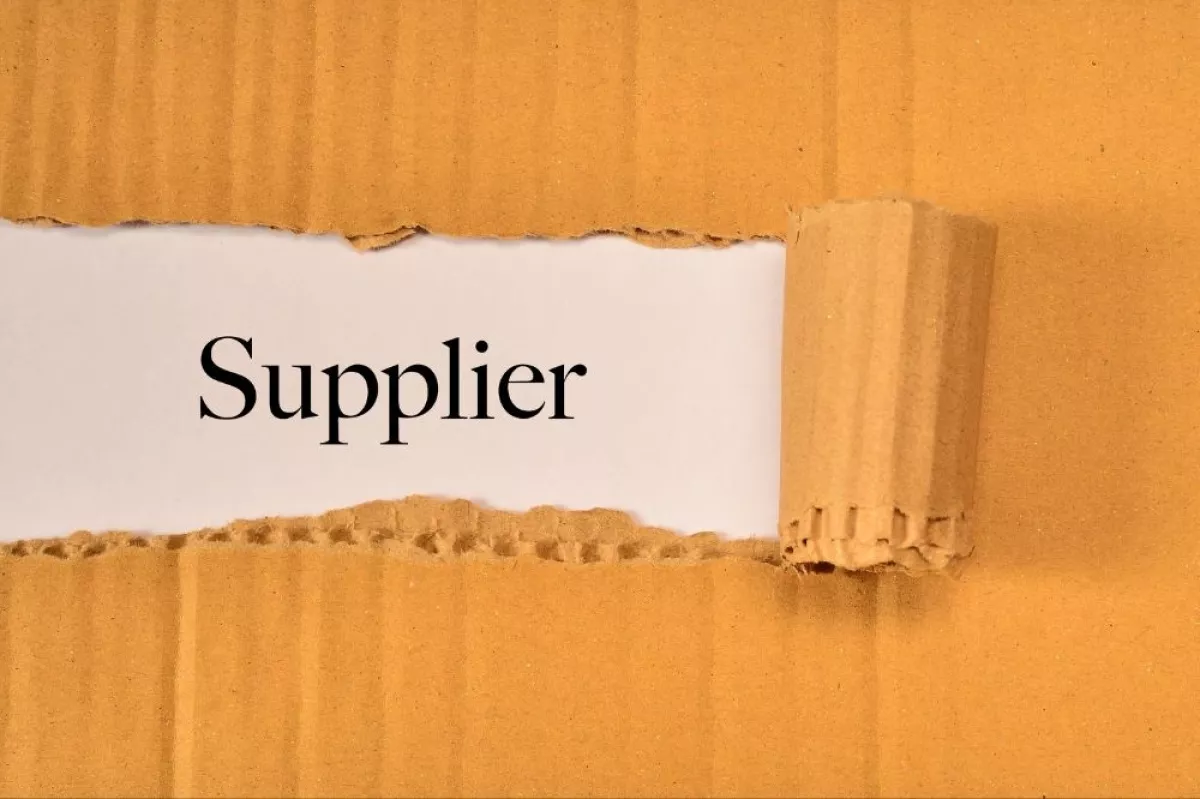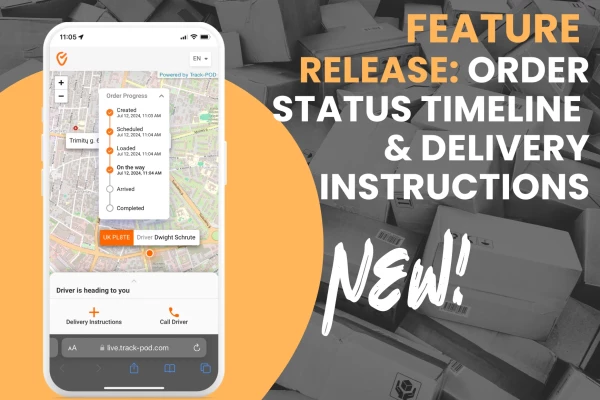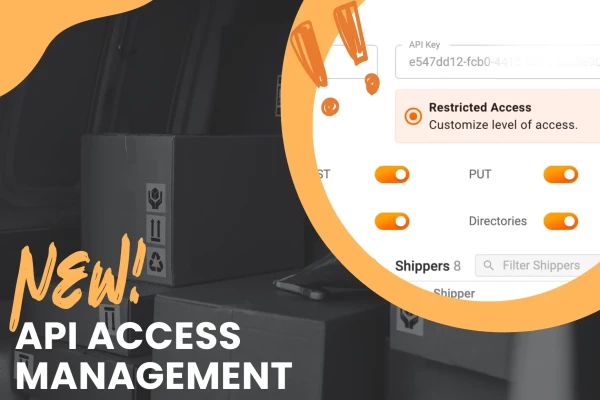Supplier Management in Logistics: A Supplier Relationship Management Guide

by
Yulia Miashkova
August 16, 2021
Supplier management is a key process in any logistics organization. It's one thing to know your business objectives and optimize internal resources - and another thing to spend time building and maintaining relationships with outside vendors. The way you're managing supplier relationships determines the efficiency of your supply chain management as such.
In this blog post, we take a close look at the supplier management process to help you identify vendor issues, run supplier risk management, and build a supplier management system with maximum value for your business.
What is supplier relationship management?
Supplier relationships management (SRM) is a part of supply chain management that covers building strategic supplier relationships that benefit the business and promote cost savings. This involves collecting supplier information and tracking supplier data, running performance and risk assessment, and ensuring compliance across all partners to the advantage of the end customer.
The supplier management solution and processes will differ from company to company. Small business to Enterprise, industry to industry, and so on. However, there are some key traits and challenges supplier management has across industries, and this is what we'll study in the section below.
What is supplier management process?
The supplier management process refers to the four stages of establishing quality vendor relationships. They reflect the supplier lifecycle and reflect the basic steps every company takes when building and maintaining relationships with vendors.
Qualification
Qualification covers strategic supplier research and evaluation of their potential value across the supply chain. This includes assessing supplier risk and the overall spend related to each prospective collaboration in the context of a larger procurement strategy. Thorough qualification is crucial to make sure you don't waste time on suppliers that aren't the right fit for you.
Segmentation
Segmentation refers to a part of the supplier lifecycle that involves a more comprehensive supplier information management. At this stage, suppliers are divided into categories based on their compliance with certain performance metrics and data.

Collaboration
Collaboration is the actual supplier relationships that are built around the services that your logistics operation provides. It starts with signing a contract and onboarding - and evolves to real-time performance insights and customer feedback on the service.
Evaluation
Evaluation is rooted in suppliers' performance data and the actual value they brought to your organization. Suppliers' services are assessed with the help of reports and real-time performance insights obtained with shipment analytics tools.
Key challenges in supplier management
A process as complex as supplier management comes with many challenges for the business. Let's see what these are so that you can realistically assess the risks associated with vendors and take wise strategic supplier decisions.
Insufficient risk management
A common challenge in supply chain management is risk management, and this couldn't be more true for vendors and suppliers. More often than not, organizations don't have enough resources for supplier risk management because they have more immediate procurement issues to tackle. The result is critical mistakes in assessing the risk and signing contracts with individual suppliers.
Communication issues
Communication is another big issue in vendor collaboration because it affects day-to-day operations and ups the costs that could be kept low. Supply chain management relies on instant data transfer: for logistics operations, this is as basic as adding orders to the system. The overall performance suffers a lot when there's a time lag between vendors and transportation providers. The longer you spend importing orders to the system, the higher your operational costs are.
Compliance
Compliance is about keeping supplier data consistent and clear. To ensure maximum visibility and transparency across the supply chain, you need to find durable solutions that support compliance for all parties. Supplier compliance requirements depends on their contracts and individual conditions - that is why visibility is essential for the global success of your business.

Decentralized reporting
It's impossible to manage strategic vendor relationships without centralized performance reports that are accessible to all partners. Organizations that spend tons of time putting together suppliers' data coming from multiple sources lose value and up the overall cost of performance management.
Luckily, supplier performance issues are easy to identify and avoid with efficient processes and tools in place. Let's look at some of the software and tricks that help leading logistics operations improve performance and risk management in the supply chain.
Supplier management software & other tricks
In the logistics business, supplier management relies on a robust strategy and leading transportation management software that is accessible to vendors.
Supplier portal
Within the larger context of your logistics operation, it's crucial to keep all systems and software in sync. To ensure smooth order data transfer you integrate your Enterprise Resource Management aka ERP and delivery software. To further save time on order import, you can also make suppliers a part of your transportation management workflow.
For example, delivery management software like Track-POD comes with a Customer Portal - a place for your vendors to log in to add, track, and manage their orders. Having a setup like this gives you a competitive advantage over companies that import supplier information related to orders manually or from multiple sources.
Managing a logistics operation gets a lot easier when you have order data coming directly from suppliers. Your delivery management system will then process orders, run routing and fleet optimization, and let each supplier track their deliveries in real-time to improve your operational visibility.
Possibly the best part of hooking your suppliers onto your transportation management solution is helping them digitalize their own operations and support your digitalization. For example, Track-POD will store Proof of Shipment documents in the cloud for visibility and easy access for everyone involved.
Supplier chain management system
Your supplier chain management system goes beyond your TMS or a shippers portal in your delivery management software. To get comprehensive performance insights on each supplier and know your overall spend, you'll need to also pull data from your procurement system and any tools you use to assess supplier risk.
Your Request for Proposals (RFP) software, procurement, resource, and order management solutions all need to come together in a defined supplier management solution or system. Supplier performance involves a lot of processes and accurately assessing capabilities, risks, and costs is impossible without a robust performance management system in place.
Procurement is tricky and so is supplier management. But if you manage your supplier lifecycle and know your processes, you can enhance your overall capabilities and provide high-quality services that also promote savings for the business.
Recap
To manage suppliers you need to know your entire supply chain and understand the risk of onboarding the wrong vendor. Supplier relationships are part of the procurement process and any gaps in it can cost you because the risk of purchasing from the wrong suppliers is too high for most companies.
Although supplier management differs industry to industry and business to business, supplier relationship management follows a particular lifecycle. Knowing that lifecycle and having solutions that support operational needs, justify the spend, and even promote savings will help you achieve operational success and stay competitive.
If you'd like to learn more about Track-POD as a transportation management solution, check out our review on App Pearl. In case you need help coming up with solutions to your supplier management workflow in logistics, get in touch with our team and we'll work on a personalized solution together.
- Transportation management
About The Author
Yulia Miashkova
Growth marketing manager with a background in public relations, SEO, social listening, and Account-Based Marketing.







